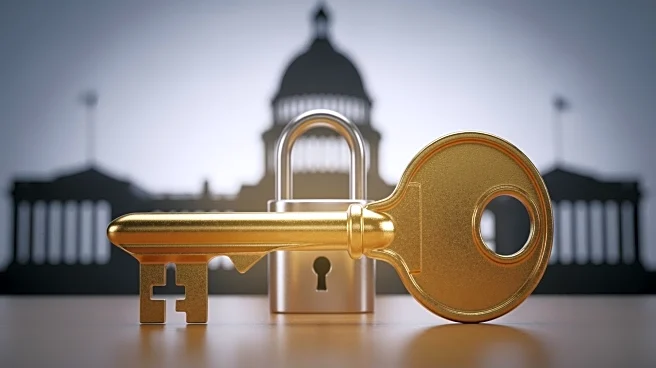What's Happening?
President Trump has stated that he will not engage in negotiations with congressional Democratic leaders to end the ongoing government shutdown until the government is funded. Senate Minority Leader Chuck Schumer and House Minority Leader Hakeem Jeffries
have reached out to President Trump, urging him to negotiate to resolve the health care crisis and end the shutdown. However, President Trump has emphasized that he will only meet with them if the government is reopened, citing the need for federal employees to return to work and receive their paychecks. The shutdown has resulted in federal employees missing their first full paycheck, and starting Monday, federal courts will lack funding for full operations.
Why It's Important?
The government shutdown has significant implications for federal employees and services, as well as the broader U.S. economy. With federal employees missing paychecks, there is increased financial strain on individuals and families dependent on government salaries. The shutdown also affects government operations, including the judiciary, which could lead to delays in legal proceedings. The political standoff highlights the challenges in reaching bipartisan agreements, impacting public policy and potentially influencing voter sentiment. The resolution of the shutdown is crucial for restoring normalcy and ensuring the continuation of essential government services.
What's Next?
The Senate is expected to hold another vote on a continuing resolution to fund the government temporarily. The outcome of this vote could determine the next steps in the negotiation process. If the resolution passes, it may pave the way for further discussions between President Trump and Democratic leaders. However, if the impasse continues, the shutdown could extend, exacerbating its impact on federal employees and services. Stakeholders, including political leaders and civil society groups, may increase pressure on both parties to reach a compromise.

















